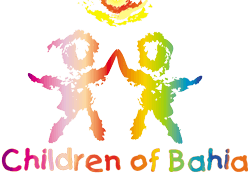Child Poverty in Brazil – Facts, Reasons, and what can be done.
Street children are those that are not taken care of by parents or other protective guardians. Street children live in abandoned buildings, cardboard boxes, parks or on the street itself. Street children are deprived of family care and protection. Most children on the streets are between the ages of about 5 and 18 years old.
In Brazil, a common cause is abandonment by poor families unable to feed all their children; an increasingly common cause is AIDS. Other causes are the death of parents or family members, violence in the home, drug taking and alcoholism. Once children resort to living on the street there is rarely any way back from this life, and the life expectancy of a child living on the streets is terrifyingly low – few expect to reach their 18th Birthday.

